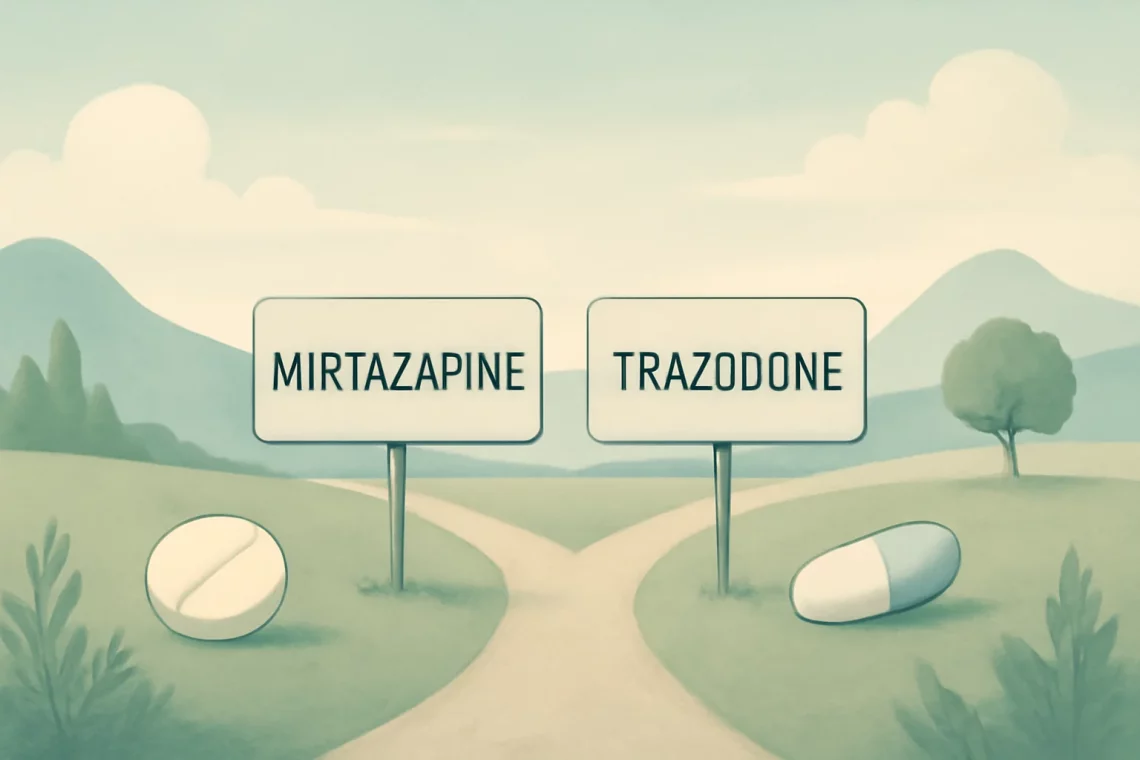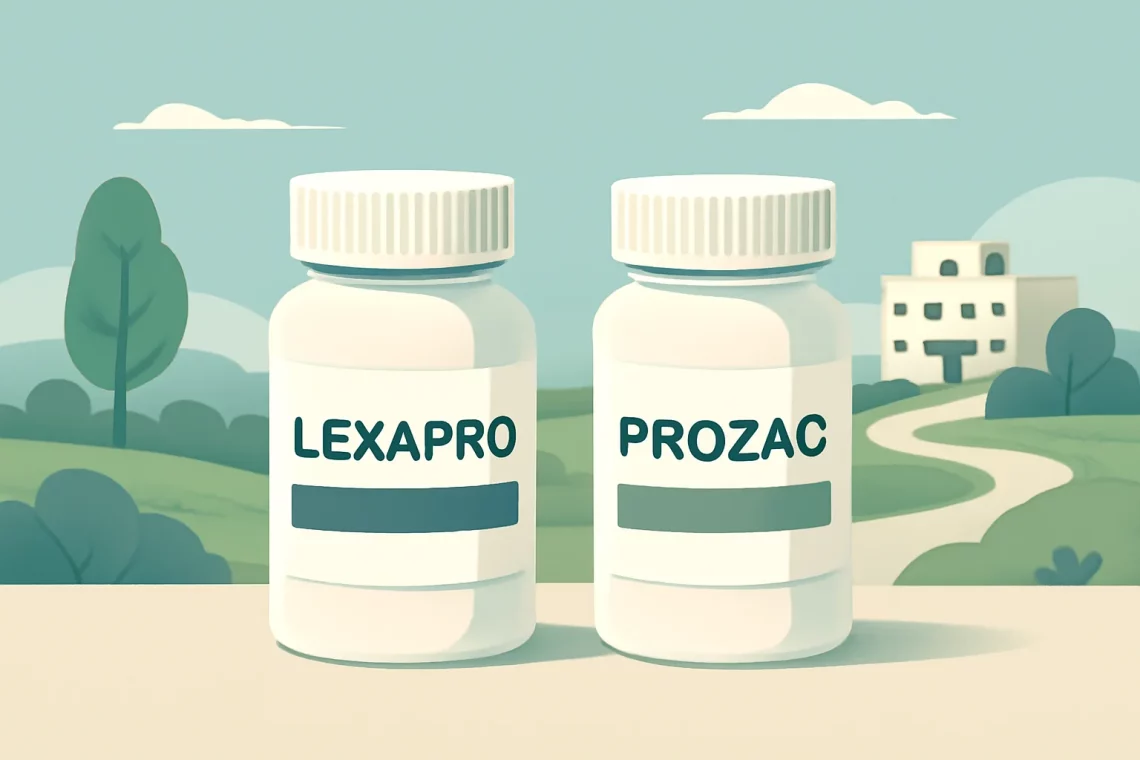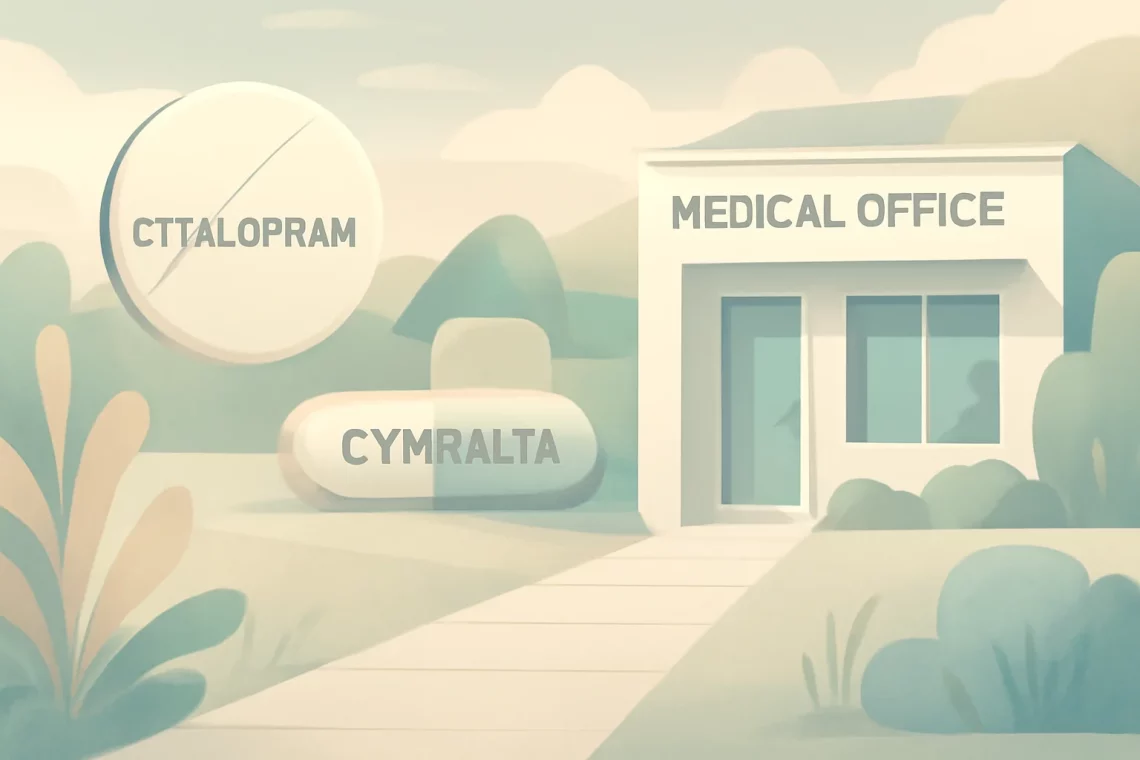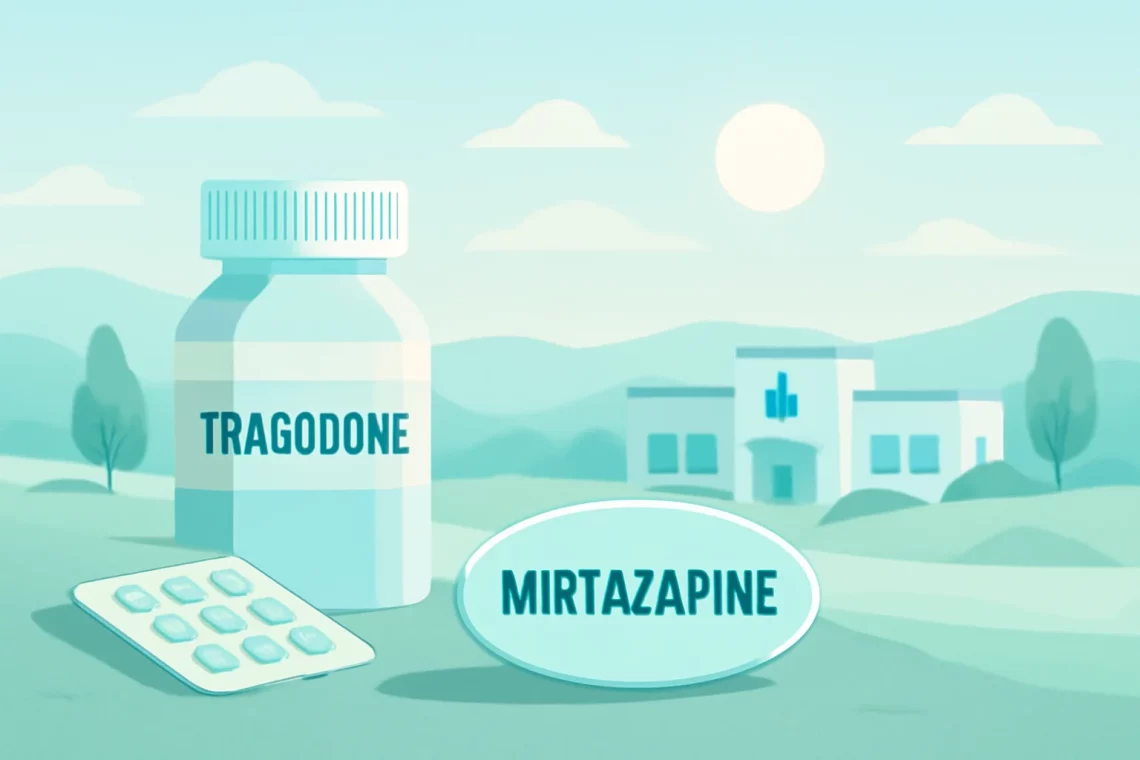-
Citalopram vs Effexor XR: Choosing the Right Antidepressant for You
Citalopram and Effexor XR are two medications commonly prescribed for the treatment of various mental health disorders, including depression and anxiety. As mental health continues to be a significant concern worldwide, understanding the differences between these two medications can help individuals make informed decisions about their treatment options. Both medications have their unique mechanisms of action, side effects, and benefits, which can significantly influence a patient’s response to treatment. Citalopram, a selective serotonin reuptake inhibitor (SSRI), is primarily used to alleviate symptoms of major depressive disorder. It works by increasing serotonin levels in the brain, which can help improve mood and emotional stability. On the other hand, Effexor XR, or…
-
Mirtazapine vs Trazodone: Which Antidepressant is Right for You?
Mirtazapine and trazodone are two medications commonly prescribed for mental health conditions, particularly for anxiety and depression. In recent years, there’s been growing awareness of the mental health crisis affecting individuals globally, leading to increased discussions about the most effective treatment options. Both mirtazapine and trazodone function as antidepressants, but they have distinct mechanisms of action and side effect profiles, which can influence a physician’s choice based on individual patient needs. As the stigma around mental health continues to diminish, more people are seeking help and exploring various treatment avenues. This shift in attitude has prompted patients and healthcare providers alike to delve deeper into the pros and cons of…
-
Duloxetine vs Venlafaxine: Which Antidepressant is Right for You?
Duloxetine and venlafaxine are two medications commonly used to treat various mental health conditions, particularly depression and anxiety disorders. Both belong to the class of drugs known as serotonin-norepinephrine reuptake inhibitors (SNRIs), which work by increasing the levels of certain neurotransmitters in the brain. These medications are often prescribed when patients do not respond to selective serotonin reuptake inhibitors (SSRIs) or when their symptoms require a broader approach to treatment. The choice between duloxetine and venlafaxine can be challenging for both healthcare providers and patients. Factors such as the specific symptoms being treated, the side effect profiles of the medications, and individual patient responses can all influence this decision. Additionally,…
-
Lexapro vs Prozac: A Comprehensive Comparison of Two Antidepressants
Depression and anxiety are two of the most common mental health disorders affecting millions of individuals worldwide. As awareness of mental health issues has grown, so too has the range of treatment options available. Among these options, selective serotonin reuptake inhibitors (SSRIs) have gained prominence for their efficacy in treating depression and anxiety-related disorders. Lexapro and Prozac are two of the most well-known SSRIs prescribed by healthcare professionals. While both medications aim to balance serotonin levels in the brain, their formulations and specific uses can vary significantly. Understanding the differences between Lexapro and Prozac is crucial for patients seeking effective treatment for mental health issues. Factors such as side effects,…
-
Citalopram vs Cymbalta Which Antidepressant is Right for You
Citalopram and Cymbalta are two commonly prescribed medications that serve distinct purposes in the treatment of mental health conditions. Both medications are utilized to address various forms of depression and anxiety, but they belong to different drug classes and operate through unique mechanisms of action. Understanding the differences and similarities between these two medications can be crucial for patients and healthcare providers alike. As mental health issues continue to rise globally, effective treatments are essential for improving the quality of life for those affected. Citalopram, a selective serotonin reuptake inhibitor (SSRI), primarily targets serotonin levels in the brain to alleviate symptoms of depression and anxiety. On the other hand, Cymbalta,…
-
Sertraline or Escitalopram: Which Antidepressant is Right for You?
Depression and anxiety are prevalent mental health disorders that affect millions of people worldwide. While there are various treatment options available, including therapy and lifestyle changes, medications often play a crucial role in managing these conditions. Among the most commonly prescribed medications are selective serotonin reuptake inhibitors (SSRIs), which are primarily used to treat depression and anxiety disorders. Sertraline and escitalopram are two well-known SSRIs that are frequently discussed in the context of mental health treatment. Both sertraline and escitalopram work by increasing the levels of serotonin in the brain, a neurotransmitter that significantly influences mood, emotions, and overall mental well-being. However, despite their similarities, these two medications have distinct…
-
Sertraline vs Escitalopram: Which Antidepressant is Right for You?
Sertraline and escitalopram are two of the most commonly prescribed antidepressants in the world today. Both belong to a class of medications known as selective serotonin reuptake inhibitors (SSRIs), which are frequently used to treat various mental health conditions, including depression and anxiety disorders. While they share similar mechanisms of action, their chemical compositions, side effects, and uses can differ significantly, leading to important considerations for both patients and healthcare providers. Understanding the nuances between sertraline and escitalopram is crucial for making informed decisions about mental health treatment. Patients may experience varying effects and side effects depending on the medication they are prescribed, and what works for one individual might…
-
Amitriptyline vs Prozac: Which Antidepressant is Right for You?
Amitriptyline and Prozac are two well-known medications primarily used to treat mental health disorders. Each has carved out its niche in the realm of psychiatry, offering distinct mechanisms of action, uses, and side effect profiles. As mental health issues continue to gain recognition and understanding in society, the importance of these medications cannot be overstated. Many individuals grappling with depression, anxiety, or chronic pain conditions may find themselves navigating the choices between these two options. In recent years, more attention has been directed toward personalized medicine, prompting patients and healthcare providers alike to consider the unique needs of each individual. This has led to deeper discussions about the efficacy, safety,…
-
Trazodone or Mirtazapine: Which Antidepressant is Right for You?
Trazodone and mirtazapine are two medications commonly prescribed for the treatment of depression and anxiety disorders. As mental health awareness has grown, so has the need for effective treatments. These medications belong to different classes of antidepressants and have unique mechanisms of action, side effects, and therapeutic uses. Understanding the differences and similarities between trazodone and mirtazapine can help individuals make informed decisions about their treatment options. Both medications are generally well-tolerated, but their efficacy can vary from person to person. Some patients may respond better to one medication than the other, and factors such as individual health history, other medications being taken, and potential interactions can influence this choice.…
-
Trazodone vs Mirtazapine: Which Antidepressant Is Right for You?
Trazodone and Mirtazapine are two medications commonly prescribed for the treatment of various mental health conditions, primarily depression and anxiety. Both of these medications have gained recognition for their effectiveness, yet they operate through distinct mechanisms in the brain and have different profiles of side effects. Understanding the nuances of each medication can be crucial for patients and healthcare providers alike when making informed treatment choices. Trazodone is classified as a serotonin antagonist and reuptake inhibitor (SARI), while Mirtazapine falls under the category of noradrenergic and specific serotonergic antidepressants (NaSSAs). Their differing modes of action influence not only their efficacy but also the types of side effects and interactions they…






































